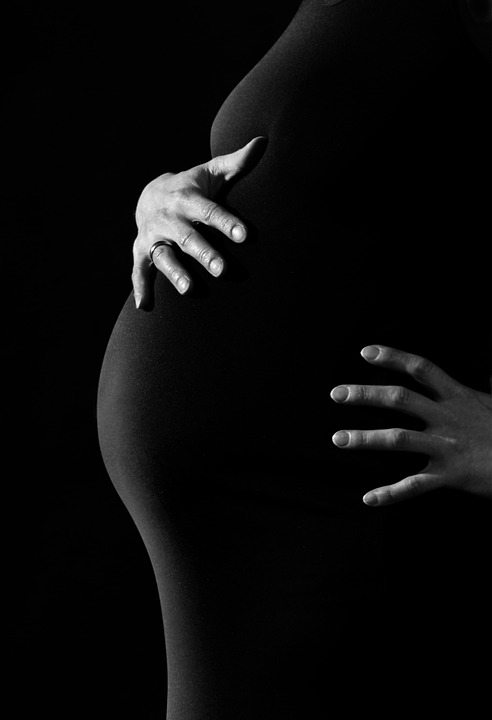With the proposal and passage of new restrictive bills aimed at banning abortion in several US states, it is becoming increasingly clear to me that, as a Catholic and a feminist, it is time to move past the pro-life / pro-choice divide.
No, this is not a “both sides are equally bad so let’s meet in the middle” argument. I don’t want to meet in the middle. I want to eradicate this entire way of talking about the issue of abortion, unborn life, and a woman’s bodily autonomy. I want to get rid of this way of parsing things into an “either / or” scenario according to which you either support a woman’s reproductive rights, or you support an unborn baby’s right to life. Splitting it this way fails to do justice to the complexity and gravity of the issues at hand. It forces one into narrow ideological boxes based on one’s support or opposition to policies and legislation.
I say “complexity” because the issues surrounding the question of abortion are complex. The ethics are complex, having to take into consideration context, knowledge, range of choice, freedom of the will, intention, complicity, and the material objective act itself. The physical reality is complex, given the many ways things can go terribly wrong for a woman and her unborn child, in the months after conception. The legal reality is complex, because simply slapping a ban on and saying “no” not only traps women – and girls – in crisis situations; it often does little or nothing actually to prevent abortions from happening. Some of the highest abortions rates in the world are to be found in nations with extremely strict bans. And it is a philosophically complex matter, given that few arguments about personhood or rights or justice, on one side or the other, are especially conclusive.
I say “gravity” because there’s a tendency to be extremely flippant about the burdens women carry. This flippancy is most glaring on the part of right-wingers who seem to think that women ought to be willing to suffer brutally, and even die, in order to choose life. But it is also present on the pro-choice side, where too often “just go get an abortion” is advanced as an obvious solution, as though this weren’t a potentially traumatic and painful procedure. Similarly, inadequate consideration is given to the gravity and sanctity of life itself – all life, any life, human or not – and the importance of maintaining structures that make the sustenance of life possible.
After years of philosophical engagement with these questions, the two most pressing realities for me, are: yes, a woman’s bodily autonomy is real. And yes, the sanctity of life is real. I am very uncomfortable with any situation of coercion of women, of legislating over our bodies, of forcing women into traumatic and intolerable positions.
At the same time I remain dedicated to the belief that we have a moral obligation to protect all life, whenever possible.
In conversations with other feminists, I find that often the issue of “is the fetus a person?” can be sidelined, because whatever our views on that, for the most part we can find common ground in wanting better choices for women, better support for families, health care for mothers and babies. The Republicans who claim to be pro-life offer none of these things, so even aside from everything else they get wrong, voting for them on this one issue is out of the question, especially given that their attempts to ban abortion are not only going to hurt women, but are unlikely actually to reduce abortion rates – and, coupled with their other policies that reduce women’s reproductive autonomy, may even make them go up.
But I can’t get wholly on board with what seems to be an indifference to the gravity and dignity of unborn life, among many pro-choicers. It’s as though, in their fierce determination to push back against anti-woman authoritarian decrees, many have forgotten to look at possibility that the unborn human might be deserving of some protection. And since the best protection for unborn life happens to overlap with the policies and practices they are advancing, to make society better for women and their families, it seems it wouldn’t hurt too much to spare a glance in this direction. To consider the possibility that yes, one can value the life of the unborn human without feeling any compulsion to get behind the kind of draconian and oppressive “pro-life” laws the Republicans advance, and certainly without any support at all for the evils advanced by those who claim to be pro-life while promoting anti-life ideology on issues of gun control, war, torture, capital punishment, animal rights, and immigration.
What if we framed it all differently?
What if every woman had access to medical care and paid maternity leave, if every abused woman were offered a safe refuge, if the prospect of juggling work and childcare were never an issue? What if on ever level of society we welcomed women with their babies – whether in restaurants and parks, or nursing while delivering a speech in the UN? What if women were empowered from an early age to take possession of and understand our reproductive processes? What if women were taken seriously by medical practitioners? What if there weren’t systemic, institutional, and personal racism driving up the maternal mortality rates for women of color?
What if we let the jury remain out on difficult metaphysical questions about personhood, and instead focused on working for a truly pro-woman, pro-child society?













